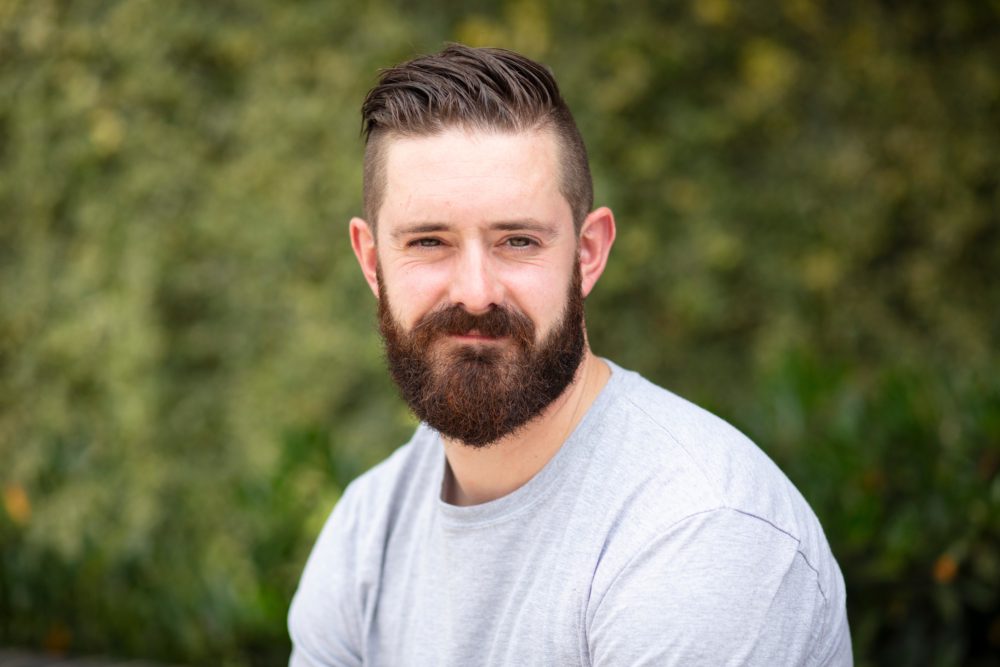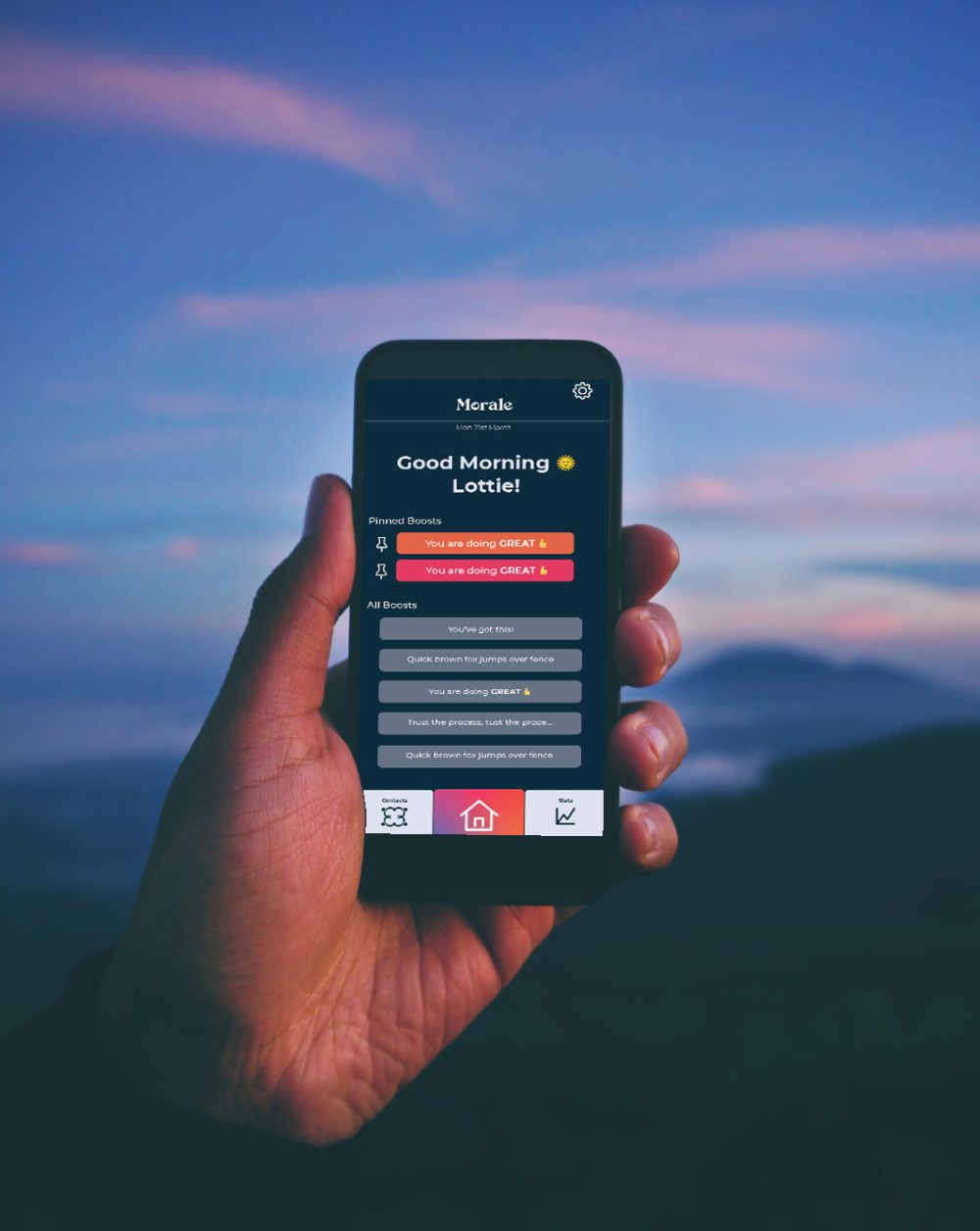The Optimist Complex: Why Do We Find It So Hard To Be Positive?
We all have one: the optimist. The positive one in the group who always looks at the bright side of things and doesn’t seem to be fazed by anything. Do you ever feel frustrated by it, or find yourself judging them?
Optimism sometimes gets a bad rep. We might think it’s unrealistic, fake, or we’re trying to come across as cool, calm and collected – so we hold ourselves back from showing our excitement or positivity. I get it. As someone who’s struggled with depression, I have a tendency to fixate on the negative, and I’ve realised that a lot of us struggle with staying positive (especially considering how difficult the past few years have been).
We’ve talked before about how more than one in 10 men in the UK live with a mental illness*. We need to look after ourselves and each other: it’s time to start using optimism to our advantage. Optimism is a skill that you can learn, like a new sport or a language. It doesn’t mean turning a blind eye when times are tough; it’s more about starting to actively look for the positives in your life.
It’s a cycle – when we start looking, we’ll notice more positives around us, helping us change the way we think and boosting our mental health. Difficult situations go from feeling insurmountable to more manageable, and we start to feel the benefits to our mental and physical health.
Why does negativity creep in?
The human brain is naturally driven to look for threats because, pre-historically, this meant the difference between life and death. Put simply, if you paid more attention to the dangers around you, you were more likely to survive an attack.
The problem is that this bias is still hardwired in our brains even though there’s no reason for us to stay on high alert anymore. Even worse, constantly focusing on the negatives takes a toll on our relationships, our moods, and how we make decisions. We need to start challenging our own negativity to strike a better balance.
We’re not saying that life doesn’t have risks, or we should go through life ignoring them. Clinical Psychologist Dr Lewina Lee says that this is a common misconception about being optimistic – being blind to reality. In actual fact, it’s about acknowledging our capabilities and feeling confident that we can cope with whatever comes our way. It’s as much about developing our confidence and self-esteem and understanding our strengths as it is about feeling optimistic.
What are the benefits of being optimistic?
Research has shown direct links between positivity and better physical health and mental wellbeing. We can make our lives easier by starting out with a positive mindset, which has been shown to help people solve problems more effectively and cope better with negative news. When we’re optimistic, relationships become easier because we tend to think the best of other people, we’re more willing to be flexible to their needs and better understand their problems.
Shifting our outlook
It’s not always easy to be positive. Bad moods creep in, but training ourselves to be a little more optimistic everyday can help to combat them. Maximising our chances of feeling good means we’re dealing with problems that come up from a better place. Here are some of the things I do everyday to focus on the positives:
A healthy morning routine
Set a healthy morning routine which you can stick to. Starting your day with a bit of movement, fresh air, hydration and a good meal is a surefire way to feel more positive. Your morning sets the tone for the rest of your day, so it’s crucial that we start it in the best way we can.
Connect with others
Whether it’s friends, family, or coworkers, our social connections are really important when it comes to helping us feel more positive about our lives. We need social connections – sharing the good and the bad. Making a conscious effort every day to do something positive for someone else helps relieve our stress. Even something as simple as complimenting someone boosts our own mood, as well as theirs. Research from Dr Tristen Inagaki, Assistant Professor at San Diego State University, shows that people thrive when they have closer social bonds, and doing nice things for others actually makes us happier.
Embrace your emotions
Acknowledging and processing your moods and emotions are also important. Sometimes noticing these feelings is difficult, but speaking to your support network and using your close connections as a sounding board to talk things through helps you identify when the negativity starts to creep in.
Ever the optimist
Being an optimist – as the word suggests – is no bad thing. It doesn’t mean that you’re avoiding reality and burying your head in the sand; on the contrary, it points to an increased level of awareness where you may recognise that you have an off day but focus on the positives instead. But it’s no fun going at it alone – that’s why I developed an app that lets you share positive, anonymous messages with your support network. We should all be able to turn to our friends when times get tough; Morale allows you to harness the power of friendships and spread positivity through your networks. The anonymity of it makes it an easy way to start being more open with your mates, without feeling awkward or embarrassed about it.
So why not start using optimism to your advantage tomorrow? You can become the positive optimist in your group and make a real difference to your life, and the lives of the people around you.
—
A guest contribution by Aldwyn Boscawen, Founder of Morale app – the antidote to social media. We’re on a mission to reverse the impacts of social media, helping you to boost the wellbeing of your closest friends every day – and benefitting your own wellbeing in the process.
By providing a digital means of boosting your friends, Morale makes it possible for everyone to spread daily positivity.









